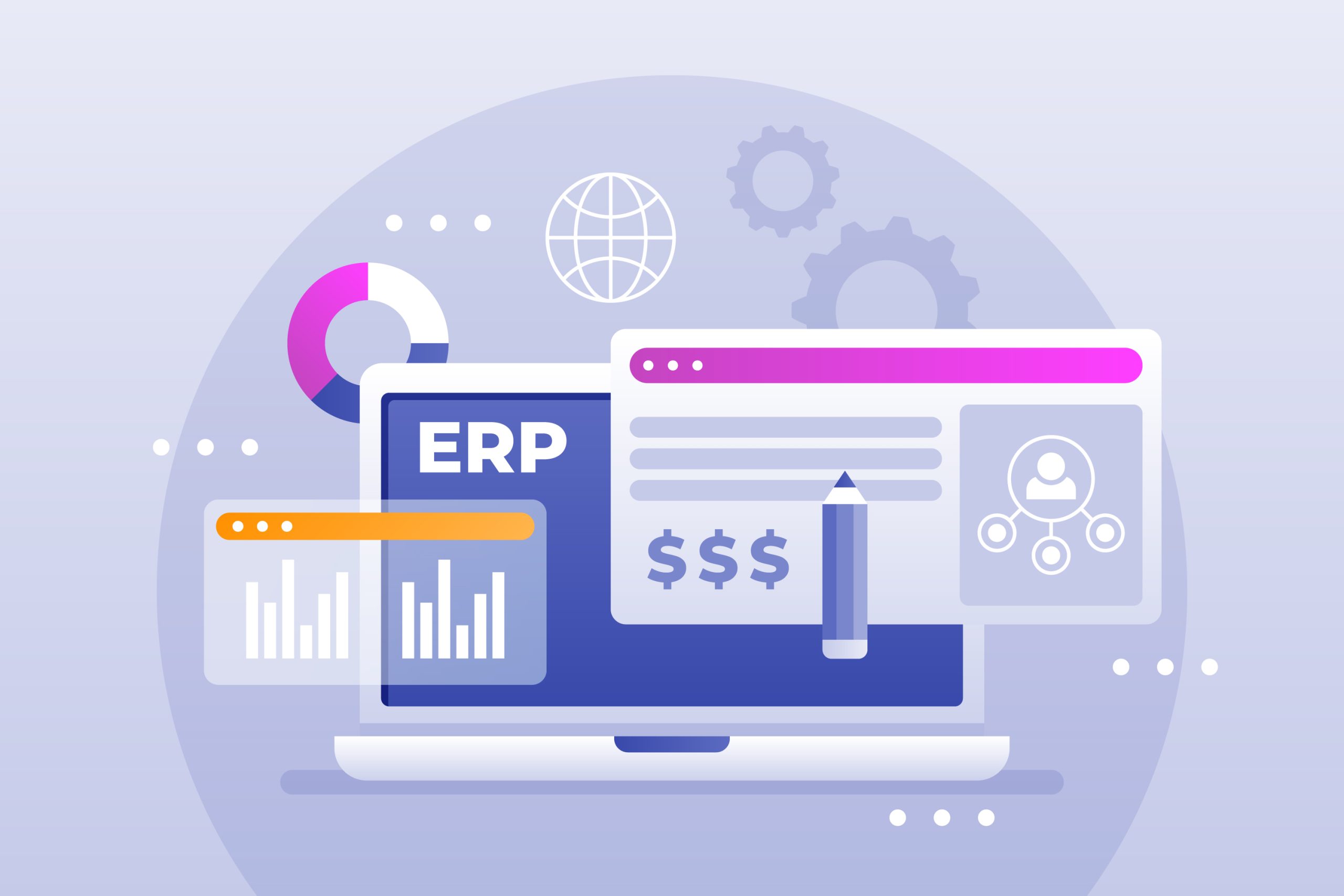
The Transformative Potential of ERP Accounting System
Recently, ERP software has become a very helpful tool for managing important business operations. By incorporating different modules like accounting, supply chain management, payroll management, and HR into a single system, modern ERP solutions promise enhanced data visibility, efficiency and insights across organisations. Particularly, for accounting departments, the centralised nature of the ERP Accounting System provides major time and cost-saving benefits when compared to fragmented legacy systems and manual processes.
Benefits of Implementing ERP Accounting System:
Integrating Financial Information:
The ability of the ERP accounting system to centralise financial data inputs from different locations, business units, products, and sales channels. The ERP system has become a single source for managing financial information in the whole organisation. This delivers better transparency for also confirming compliance with accounting regulations. Automatic dashboards and reporting functionalities enhance visibility into cash flows, profitability metrics, and other key performance indicators (KPIs) in real time.
Automating Manual Tasks:
ERPs bring advanced automation to previously manual accounting workflows. For example, when any sale order is entered, inventory levels update automatically and general ledger entries for accounts receivable, revenues, and cost of goods sold are created effortlessly through pre-configured accounting rule sets. Approval workflows with audit trails can also be established for key processes such as payroll, vendor payments, and customer invoicing. Such automation not only minimises data entry and manual errors but also enables accounting teams to focus on value-added analytics and decision support rather than repetitive mechanical tasks.
Global Consolidation Capabilities:
For enterprises with global operations, ERP systems greatly facilitate financial consolidation and reporting across business units, subsidiaries, currencies, languages, and jurisdictions. Country- and industry-specific localization functionalities account for unique compliance requirements while drill-down features provide visibility from high-level consolidated financials down to individual transactions. Multi-currency, multi-language, and multi-legislation capabilities reduce inaccuracies during currency and financial statement translations. The integrated nature of ERPs further ensures all consolidation data is pulled from the same trusted live database.
Enhanced Auditing and Security:
Robust user access controls, permissions settings, and activity logging improve security as well as auditability within ERP accounting modules. Workflow validations prevent unauthorised changes to key master data while automated balancing mechanisms reduce anomalies and exceptions. Segregation of duties can restrict sensitive accounting functions to qualified users. These enhanced controls create reliable audit trails, minimize risks during transitions, and strengthen compliance oversight.
Insight-Driven Decision Making:
As ERP systems harness vast volumes of financial data across business functions, they enable sophisticated reporting dashboards, visualizations, and analytics for business leaders. Trends, outliers, correlations, and drivers behind performance metrics become more transparent. Scenario modeling and forecasting capabilities empower stakeholders to simulate decisions, predict outcomes, and continuously optimize processes. By delivering not just backward-looking reporting but predictive and prescriptive analytics capabilities, ERPs transform raw financial data into strategic business intelligence.
Challenges and Implementation Risks:
However, realizing ERP accounting value depends heavily on managing risks during system selection, customization, and organizational change management. Overly complex or poorly matched ERP capabilities can overwhelm business needs. Generic one-size-fits-all tools that fail to facilitate industry- and organization-specific requirements may undermine adoption rates. Unless key user groups are thoroughly involved to ensure standardized workflows and protocols, data inconsistencies can persist. Poor or incomplete data migration can further undermine trust in the new system. These missteps amplify costs and timelines for implementing ERP accounting modules while cutting into productivity and ROI.
Conclusion:
For the promise of streamlined processes and data transparency to materialize, the technical capabilities of ERP solutions must align closely with the operational maturity as well as the culture of adopting enterprises. Achieving user buy-in across departments through sustained executive sponsorship and change management is equally essential. When these success factors converge, an ERP accounting system can transform business performance by unlocking efficiency, insights, and economies of scale previously unseen in accounting functions. The centralised source of reliable financial intelligence across the enterprise ushers in a new era of data-driven strategy and decision making. CherryBerry ERP is a famous company for implementing ERP accounting systems in the right way. You can contact them any time to avail their amazing services.
